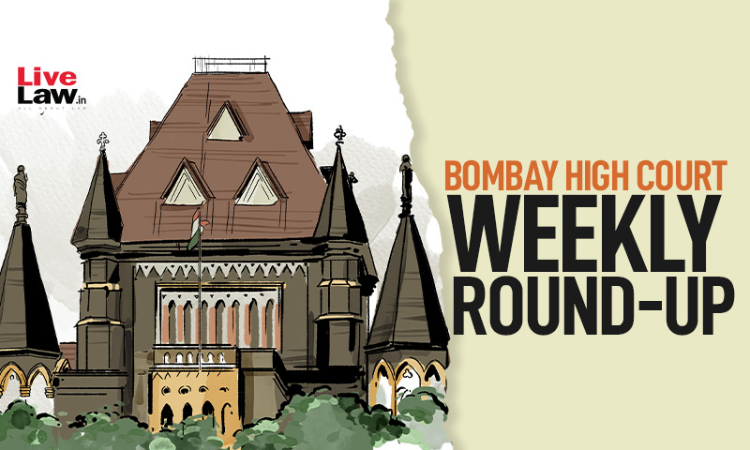Bombay High Court Weekly Round-Up: August 21 To August 27, 2023
Amisha Shrivastava
28 Aug 2023 3:05 PM IST

Next Story
28 Aug 2023 3:05 PM IST
Nominal Index [Citation 379- 393]Khairunisa Sheikh Chand v. Chandrashekhar Daulatrao Chincholkar & Ors. 2023 LiveLaw (Bom) 379Asha Shivaji More v. State of Maharashtra and Anr. 2023 LiveLaw (Bom) 380ABC v. XYZ 2023 LiveLaw (Bom) 381Prakash Madhukarrao Desai v. Dattatraya Sheshrao Desai 2023 LiveLaw (Bom) 382Archbishop Patriarch Of Goa Rev. Fr. Filipe Neri Ferrao v. State...
